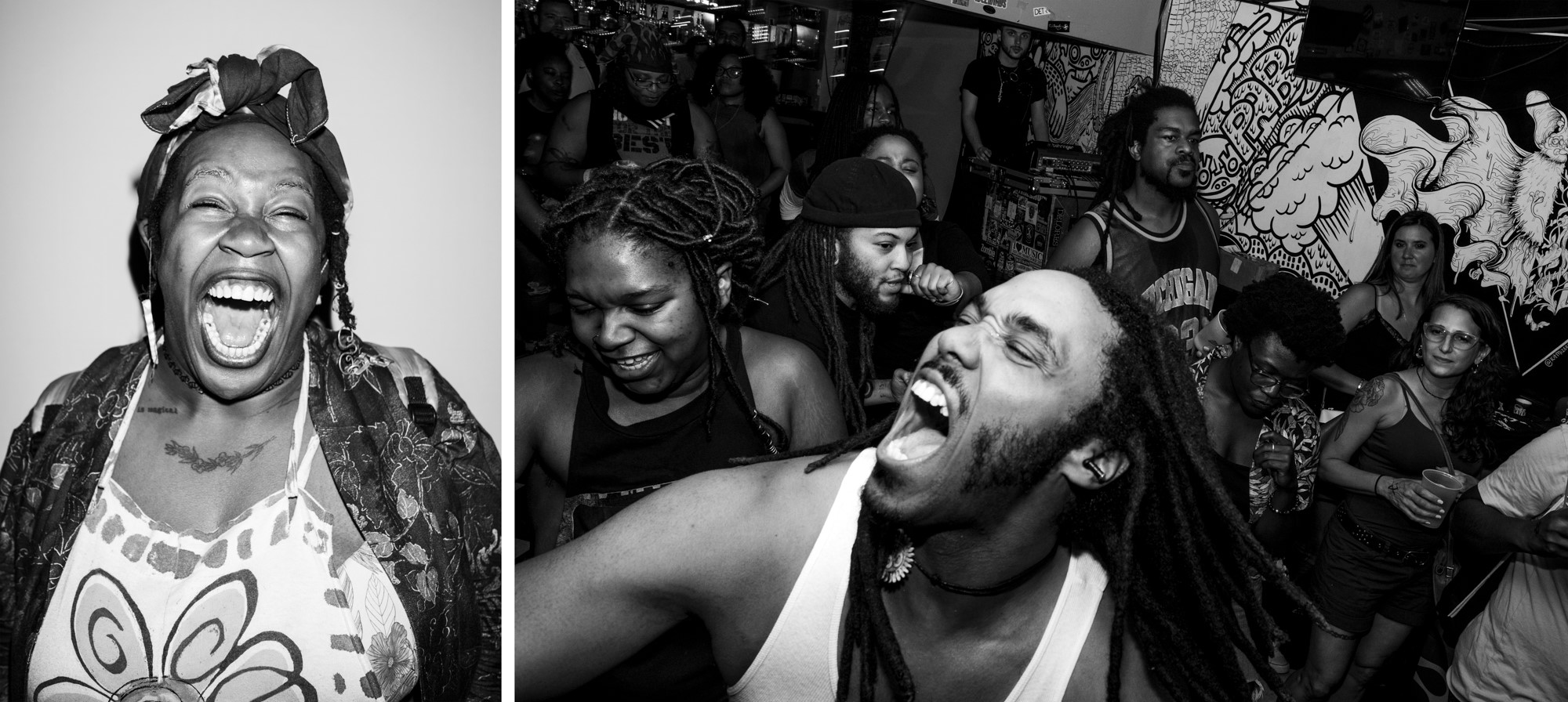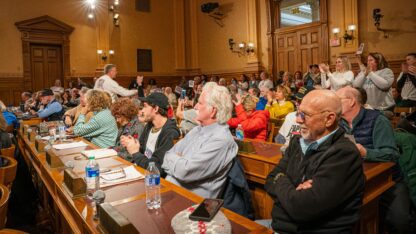A new photo exhibit “POC: Punks of Color” is on view along the Westside Trail of the Atlanta BeltLine — part of the “Georgia Fence” project. Photographer Arvin Temkar followed the local collective Punk Black in 2019 to showcase people of color, who are fans of punk music.
“City Lights” producer Summer Evans spoke with Arvin Temkar about his exhibit and his love of punk music.
Interview Highlights:
Where his interest in punk music began:
“I’ve always been into rock and rock. My dad worked for the army and we moved around a lot. I spent a few years in the Atlanta area in elementary school and I was really into Fox 97 (the radio station), they played 50s and 60s music. That was my introduction to rock and roll in general and when I went on to high school, I started getting drawn to punk rock because I felt like an outcast and I was kind of angry. I was drawn to the attitude of punk rock.”
What inspired him to photograph Afro-punk bands:
“I had this experience for much of my life going to punk shows in the states, being one of the only people of color at the shows. It’s something that you can kind of feel,” said Temkar. He continued, “So I came to Atlanta and I found out about Punk Black, they’re a collective that organized shows by bands of color. I was super excited to hear about them and I wanted to start documenting the scene. I felt like it would be very visual and I felt a personal connection.”







